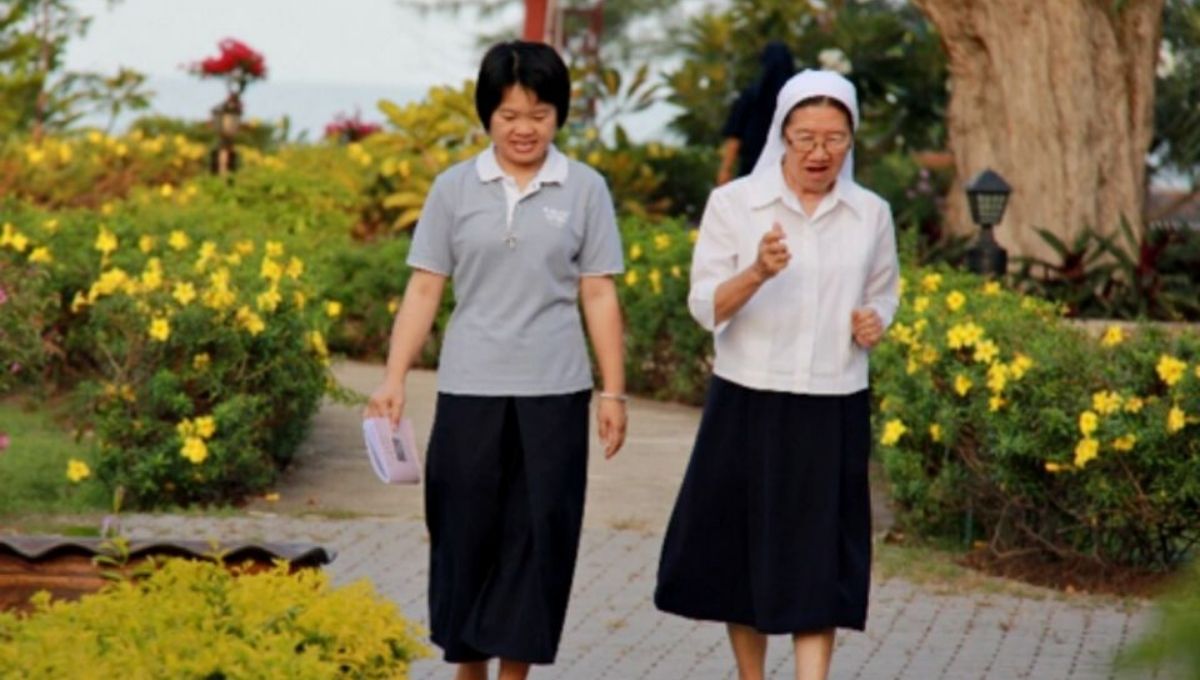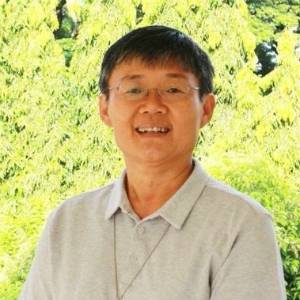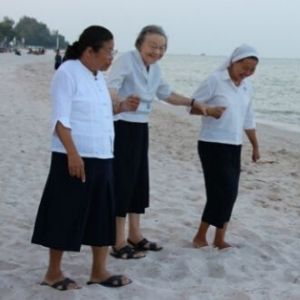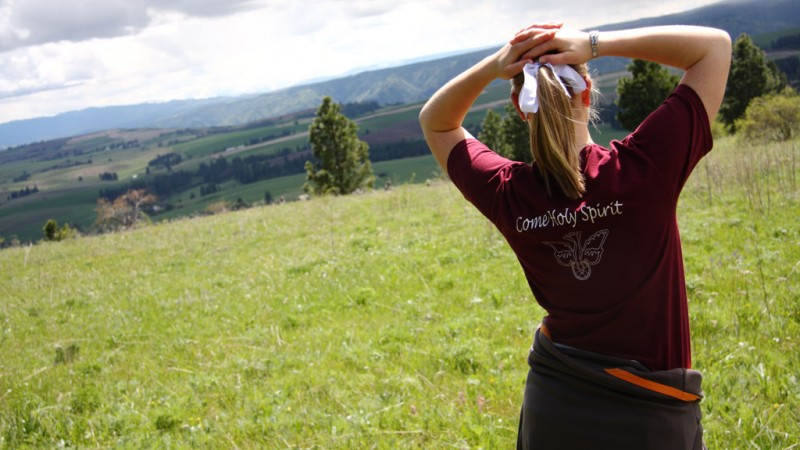
Sister Jantana Wongsankakorn, an Ursuline Sister of Thailand, worked in the financial sector for 10 years. Inspired by the simplicity of religious life, she joined the congregation in Bangkok. After biblical studies in India, Mandarin courses in Taiwan and a tertianship in Rome, she ministered as a catechist and a member of the national chaplain team, and then as a missionary in Cambodia. Currently, she is a member of an Asian Pacific chaplain team and teaches mathematics at the Ursuline school in Bangkok.
 The Ursulines have been in Thailand since 1924. Since the beginning, we have been a small group of religious women — around 50 members, even in the early years. Now, we have only 33 sisters.
The Ursulines have been in Thailand since 1924. Since the beginning, we have been a small group of religious women — around 50 members, even in the early years. Now, we have only 33 sisters.
Ten years ago, we were a very international province of the Roman Union, composed of missionaries of more than 10 nationalities. Our last, the only missionary from Canada, passed away this month at the age of 97. The average age of the sisters in our province is around 66. I suppose we can say that is quite young based on World Health Organization information about global aging!
Now, only 50% of the sisters in our province would be considered to be in active ministry. The idea of dividing sisters by age group was first discussed 10 years ago; actually, we saw it as a way to support and encourage each other.
We have a retirement home and a large infirmary. The sisters who are not active can have more leisure time to talk, walk and enjoy group activities. They can enjoy special favorite foods and enjoy movies together. In Thailand, we hire some young women to help the aged sisters so that we sisters in active ministry can put all of our efforts into the missions. Life is harder when the works are the same but the harvesters are fewer!
 Thai culture is a peaceful one. We live in harmony and — according to Asian custom — respect our seniors very much. Balance is one of the most important values of our culture. We used to have two big communities and three smaller ones. Our communities were "in balance": a mix of both age and nationality. In that situation, the young sisters could learn from the elderly. The young and older sisters worked, prayed and enjoyed life together.
Thai culture is a peaceful one. We live in harmony and — according to Asian custom — respect our seniors very much. Balance is one of the most important values of our culture. We used to have two big communities and three smaller ones. Our communities were "in balance": a mix of both age and nationality. In that situation, the young sisters could learn from the elderly. The young and older sisters worked, prayed and enjoyed life together.
In my experiences of living with elder sisters, we have had a feeling of being one family. To live with only active sisters is a "productive" community, but there is something missing.
Finally, on reflection, I asked myself: What kind of community do I prefer?
I decided that it depends on me and the other sisters who live in a community. Regardless of age, we are all different in many aspects, both physically and spiritually. It is my attitude toward everything around me, especially the ones who live with me, that is the most important factor in my happiness.
We consider ourselves small but beautiful!
We're delighted to bring you this blog from the monthly feature "The Life" courtesy of our friends at Global Sisters Report. This month "The Life" panelists were invited to reflect on some of the issues involved in the changing demographics of religious life. Click HERE to read more blogs from The Life, GSR's monthly feature about the unique, challenging and very specific lives of women religious around the world.
